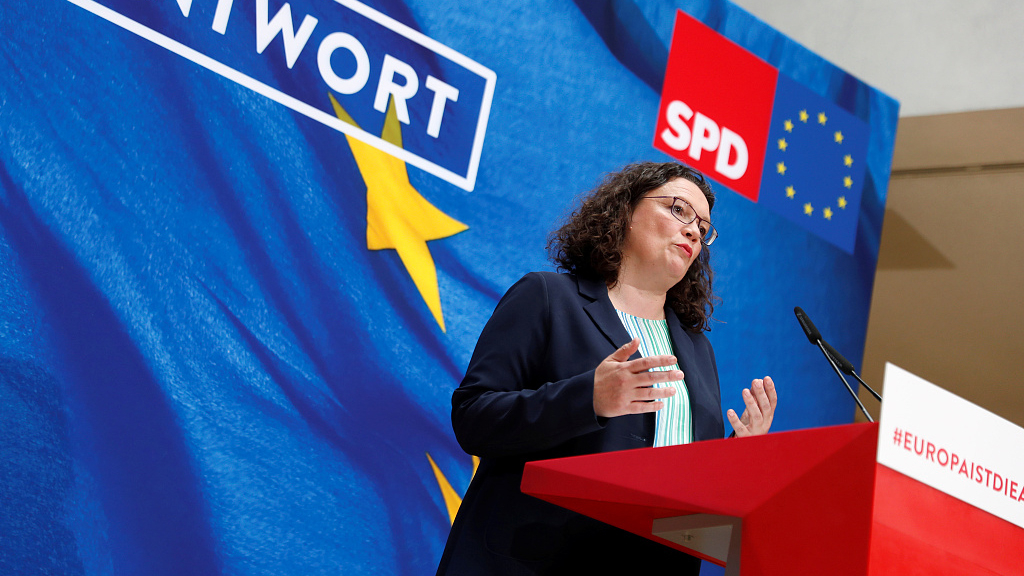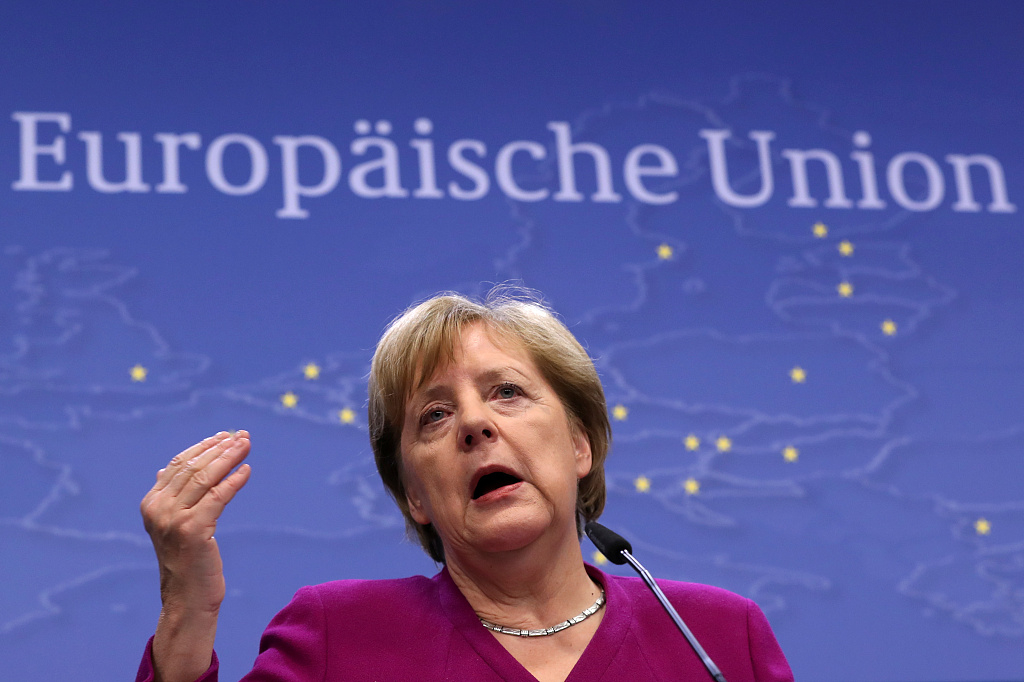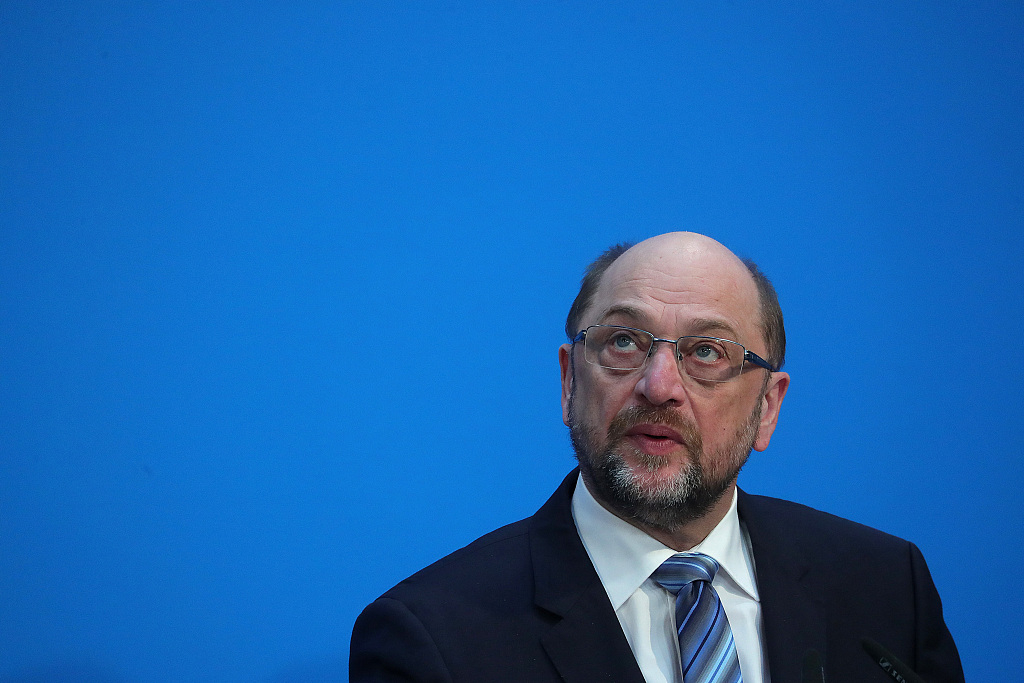
Europe
17:29, 02-Jun-2019
Germany's SPD leader quits as party's popularity hits low
Updated
21:44, 02-Jun-2019
CGTN
00:30

Germany's Social Democratic Party (SPD) chief Andrea Nahles announced her resignation on Sunday, saying she did not have the support she needed to lead it.
Nahles also said she will give up her position as head of the party's parliamentary group.
The leadership upheaval comes as the Greens have overtaken Chancellor Angela Merkel's conservatives to become the most popular party in Germany, an opinion poll on Saturday showed, with the SPD support at an all-time low.
"The discussions within the parliamentary faction and feedback from within the party have shown me that I no longer have the necessary support to carry out my duties," Nahles said in a statement released by the SPD on Sunday.

German Chancellor Angela Merkel holds a news conference after a European Union leaders summit following the EU elections in Brussels, Belgium, May 28, 2019. /VCG Photo
German Chancellor Angela Merkel holds a news conference after a European Union leaders summit following the EU elections in Brussels, Belgium, May 28, 2019. /VCG Photo
The politician said she would resign as head of the SPD on Monday and quit as leader of the party in parliament on Tuesday.
Nahles was due to face a vote on her leadership position on Tuesday after her decision to stay in coalition with Merkel's conservatives was criticized by the party's left.
Earlier, German Vice Chancellor Olaf Scholz told Germany's Tagesspiegel that had ruled out entering another grand coalition as the country's Social Democrats seek to regroup after losses during the European parliamentary elections last week.

Former SPD leader Martin Schulz speaks during a news conference at the Christian Democratic Union (CDU) headquarters in Berlin, Germany, February 7, 2018. /VCG Photo
Former SPD leader Martin Schulz speaks during a news conference at the Christian Democratic Union (CDU) headquarters in Berlin, Germany, February 7, 2018. /VCG Photo
"I am very sure that it would not be justifiable for us to have a fifth grand coalition," Scholz told the German paper in an interview published on Sunday before Nahles announced she would resign.
"Three grand coalitions in a row would not do democracy in Germany any good."
Former SPD leader Martin Schulz told Germany's Welt am Sonntag newspaper that he would not stand against Nahles in the leadership vote on Tuesday but declined to answer whether he would seek to be re-elected leader thereafter.
(With input from Reuters)

SITEMAP
Copyright © 2018 CGTN. Beijing ICP prepared NO.16065310-3
Copyright © 2018 CGTN. Beijing ICP prepared NO.16065310-3